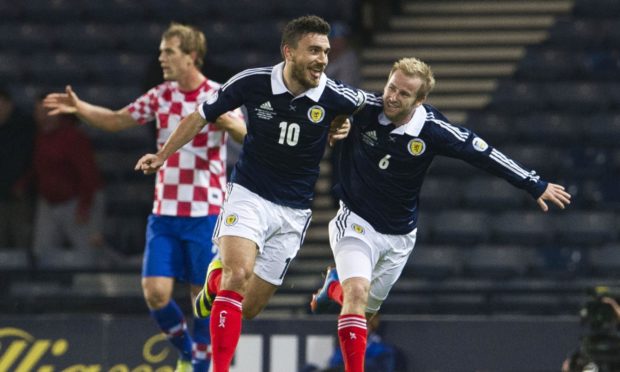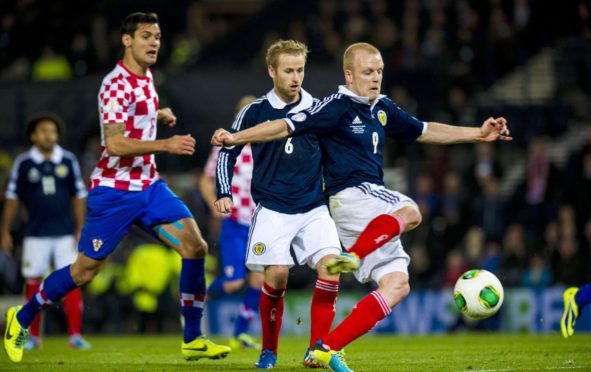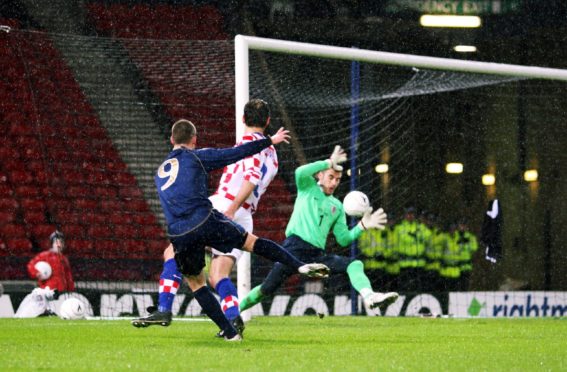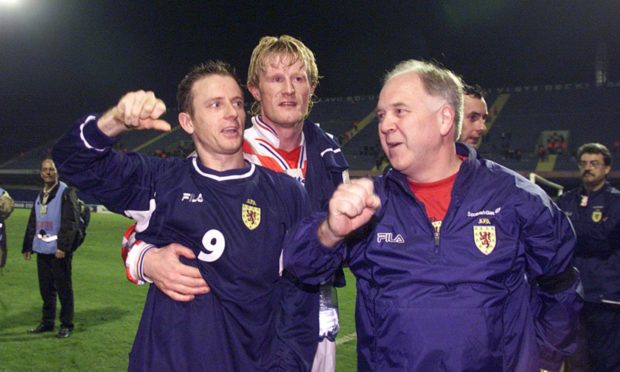Steve Clarke’s Scotland are on the brink of making history – the first side to lead the Tartan Army into the knockout stages of a major tournament.
Many greats have tried and failed over the decades. One victory can erase all that hurt in 2021, however.
Standing in the way of the last 16 are World Cup finalists Croatia.
Led by Ballon d’Or winner Luka Modric, the Croats head into the clash at Hampden on Tuesday night knowing it is do-or-die.
The winner goes through to the knockouts, the loser goes home – and if it’s a draw, both head for the exit.
Getting into the next stage will require Scotland to do something they’ve never done before.
The same also applies to Croatia.
For they have never beaten the Scots in their 30-year history as an independent nation.
In fact, the only European nations Croatia have played and never beaten are France, Portugal and us plucky Scots.
A draw helps neither so whichever way the result goes on Tuesday night, history will be made for one of the sides.
So how have the record books ended up so heavily weighted on Scotland’s side?
Scotland 2-0 Croatia – October 15, 2013
Five of the six nations in Scotland’s 2014 World Cup qualifying group have featured in Euro 2020, the only one missing is a Serbia side beaten by Clarke’s men in the play-off.
Belgium, Croatia, Serbia, Wales and Macedonia stood in the way of a trip to Brazil.
Scotland wouldn’t make it. The Croats would, by finishing second behind Belgium.
However, that didn’t stop the Scots defeating them home and away.
Robert Snodgrass opened the scoring in both games – the last meeting between the nations saw him head in a Charlie Mulgrew cross in the first half.
Barry Bannan would see a second-half spot-kick but Steven Naismith was on hand to tap in the rebound.
Croatia 0-1 Scotland – June 7, 2013
Gordon Strachan’s tenure as national team boss hadn’t started well with defeats to Wales and Serbia leaving Scotland with no chance of qualifying.
However, his first competitive victory as manager would be one of the best away results during his time in charge.
Croatia were missing Modric but still had the likes of Ivan Perisic, Ivan Rakitic, Mateo Kovacic and Mario Mandzukic in their side.
It was Snodgrass once more who made the difference, though, scoring the only goal of the game after 26 minutes.
Scotland 1-1 Croatia – March 26, 2008
Under Alex McLeish, Scotland narrowly missed out on Euro 2008 before he left for Birmingham City.
That saw George Burley take charge and his first match was a friendly at home to a Croatia side preparing for the summer tournament.
A young Modric was in the visiting side but it was his future Tottenham team-mate Niko Kranjcar who fired beyond Craig Gordon early on.
Kenny Miller would equalise from a tight angle after half-an-hour as Burley’s reign got off to a creditable start.
Scotland 0-0 Croatia – September 1, 2001
Craig Brown had been in charge of the national team since 1993 but failure to qualify for the World Cup in 2002 brought an end to the former Dundee defender’s tenure.
And Croatia played their part in Scotland finishing third, drawing twice.
The second game left both sides two points behind Belgium with two matches to go. Scotland would lose to the Belgians a few days later.
Billy Dodds had thought he had given the Scots a huge win only to see his goal in stoppage time ruled out for offside.
Croatia 1-1 Scotland – October 11, 2000
The first ever meeting between the countries saw the likes of Colin Hendry, Craig Burley and Kevin Gallacher face off against Robert Prosinecki and Alen Boksic, both European Cup winners.
The latter would open the scoring after 15 minutes, getting behind Matt Elliott and beating Neil Sullivan.
Former Dundee United man Gallacher would level matters nine minutes later, tapping home a Colin Cameron cross.
Manager Brown, though, would be sent to the stands in the second half after an argument with the match official.
Despite that, Scotland earned a good result on the road only for the qualification campaign to end in disappointment.
That became familiar to the Tartan Army for the next two decades.



